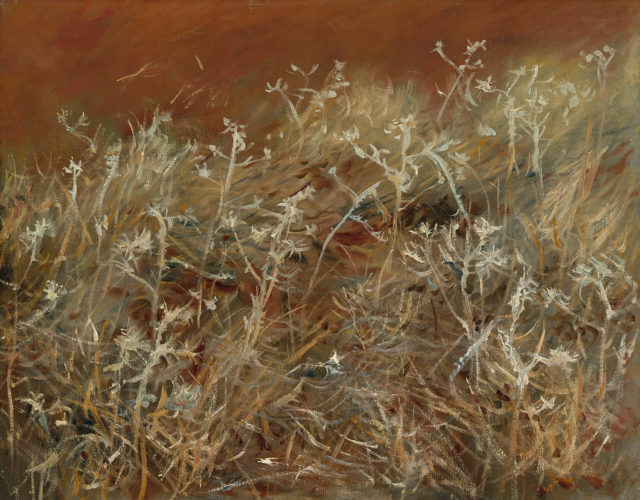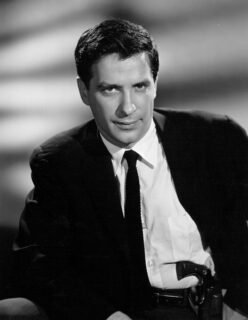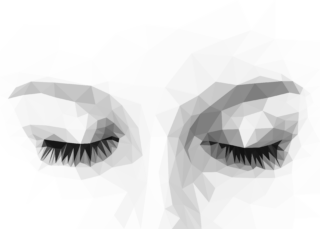
I do not keep a diary although I plan to start doing so any day now. Every preparation is in place and it only remains for me to begin. Everywhere I go I carry a pencil, or a pen, and a small black notebook in readiness for the day that I become a committed diarist. The pen, which is sometimes a pencil, is cheap and ordinary — I am not superstitious about these things. The notebook is blank. It isn’t one of those that has the day of the week printed at the top of the page or else the seven days of an entire week running down its left-hand side. Those are for recording things that one plans to do whereas my diary will be for recording things that I have already done (even if, at present, many of these events have not occurred yet and the entire enterprise of diarizing currently remains a plan).
Back when I worked in an office someone would occasionally ask me what I did on the weekend, and every mental trace of those possibly eventful days having vanished, I would say “Oh, not much.” My diary will be a way of storing up the past, of making it accessible to the present. When I start keeping a diary I will write solely for myself. Paying no heed to quality, I will keep a simple daily record of what I have seen, heard, read, felt, and thought. My diary will give my life shape and coherence, or perhaps it will reveal that it already has these. In the years ahead I expect that my diary will become even more valuable, and as I prepare to start writing it I find myself anticipating just how interesting my life will appear when, decades from now, I read about it.
Call it research, perhaps, but recently I have started reading the diaries of others. I mean those that have been published as books — I haven’t been invading anybody’s privacy or have only been doing so within the parameters of social acceptability. I prefer diaries that are artless and written without design, perfectly unselfconscious. This is how my own will be. My favorite moments in any writer’s diary are those when they break the flow in order to note down something entirely for themselves: a shopping list or a to-do list, lists of words learned, books read, films watched (or in the case of Leonardo da Vinci, a detailed breakdown of exactly which nasty little boy owed him what for his cotton cloak, shirt, and socks). These moments pierce me: more so than any narrative, they have the power to restore an entire world and to make time’s arrow resemble a question mark.
In the best diaries the absences are as meaningful as what is written — no, they are more meaningful. In Kafka’s diary, which is the apogee of the form — the standard against which all others must be judged — the writer’s fastidious diarizing ends abruptly on September 25, 1912, only two days after he had rejoiced in that same oilskin notebook “How everything can be said.” It recommences, patchily, on February 11, but it is only on May 2 that the prodigal diarist can truly be said to have returned (“It has become very necessary to keep a diary again”). This silence, it speaks to us. It is one of the most tantalizing moments in Kafka’s diaries, in part because we know that it coincided with the busiest period of his life, a period during which he composed “The Metamorphosis” and initiated a long, unhappy correspondence with Felice Bauer, quickly eliciting the woman’s love, another literary accomplishment.
Freud once wrote of how the diaries of “mortals often skim over the most important events of the day with only a few words or ignore them altogether.” A diary that cannot keep pace with life is its own sort of statement, but unfortunately it isn’t enough simply not to keep a diary. Quite the opposite, in fact, since it is only against the background of his prodigious diarizing that Kafka’s silences hold any meaning at all. What’s more, in the case of Kafka we have other documents — letters, biographies, and of course his fictions — that enable us to fill in the gaps, and this transforms those gaps from plain absences into aching reticences. Of course, these diaries should not exist at all: Kafka instructed his friend Max Brod to burn all his papers, and this fact undoubtedly, if dubiously, adds excitement to the experience of reading them, giving it a frisson of the illicit. Rereading Kafka’s diaries last year gave me a pleasure that felt a little bit indecent, and I pledged that when I begin to keep my own diary, I will do so with sufficient commitment that my silences, too, will reverberate.
In his celebrated essay “E Unibus Pluram,” David Foster Wallace pointed out the artifice and performance involved in any seemingly authentic televised presentation of self — a paradox embedded in the oxymoronic injunction to “act natural.” In the thirty years since Wallace wrote his essay, video cameras have become ubiquitous, virtually never out of reach, and the ones that are embedded in laptops and smartphones are now the most common way of chronicling daily life: a form of diarizing, or a replacement for it. I personally am not a born performer — am a little shy, in the idiom of contemporary pseudoscience, an introvert — but when necessary can generally perform as is required of me. Still, as soon as I realize that I am being recorded there is one thing that I am wholly incapable of being, and that, needless to say, is my “self.”
But the power to effect such undoings is not the unique privilege of the camera lens. For centuries writers have contended with the artificial nature of what is captured by the recording devices at their disposal — not unlike how twentieth-century physicists discovered that light oscillates between wave and particle depending on how it is being recorded. In Augustan London, keeping a diary became an obligatory pastime for the well-heeled litterateur, with Joseph Addison celebrating the way this practice could transform one into a spectator of oneself. In reality, however, what begins as voyeurism can quickly edge into exhibitionism. In the celebrated biographer James Boswell’s first diary entry, written on arrival to the capital in November 1762, he expressed the wishful belief that the practice of keeping a diary would make him a better person, since “knowing that I am to record my transactions will make me more careful to do well.” However, a friend later pointed out that Boswell’s diary seemed to have the reverse effect on his behavior, since it encouraged him to “hunt about for adventures to adorn it with.” Call it the observer effect: oscillating between saintliness and rakishness, Boswell, when placed under his own gaze, was incapable of acting naturally.
For many writers, the diary is a place where they self-consciously style themselves into writers, and this includes writers whom it would be impossible, now, to view as anything but writers. The critic Brian Dillon has suggested that to read Susan Sontag’s diaries from her days as a graduate student is to witness her first essays in her life-long, never-finished task of becoming Susan Sontag. At the age of twenty-four Sontag wrote, “In the journal I do not express myself more openly than I could to any person; I create myself.” She went on to call her diary “a vehicle for my sense of selfhood,” though I prefer the earlier formulation, which, a little more faltering, better expresses the knot of freedom and unfreedom in every attempt to write about oneself. In a diary one is condemned to be free. One cannot simply perspire one’s self onto the page. There is no getting away from the business of choosing what to say and how to say it, and with this creative freedom comes the potentially paralyzing suspicion that for all one’s candor one is forever being a little bit dishonest: confecting, dissembling, or simply missing the mark.
“Deceit and mystification not only are inevitable but constitute the writer’s honesty,” wrote Maurice Blanchot in “Literature and the Right to Death,” which may or may not be consoling as one sits down to write one’s daily autofiction. In a letter to her aunt, the diarist Alice James apologized after telling a few too many self-aggrandizing tales, before reflecting that, on second thought, there was no getting around artifice. Better, then, to have a little fun: “I have to be my own Boswell and it would be a pity for you to lose a little local color by artificial bashfulness in me.” Freud meanwhile was disturbed to find that his case studies always resembled literature, although he comforted himself “with the reflection that the nature of the subject is evidently responsible for this.” Of course questions of deceit and artifice are not surprising when it comes to our exchanges with and about other people, but what about when one is writing for oneself? When, free of any literary ambitions, one intends to be one’s own Boswell and one’s only reader? I wonder if it was a desire to evade these questions that led Boswell himself, in an essay on his diary, to dream of an “invention for getting an immediate and exact transcript of the mind.” Yet a diary is not like a pocketed leaf of paper smudged with one’s fingerprints: like every display of self, it is subject to the decisions and distortions of presentation. In the case of a diary that is solely for one’s private perusal, the question is not, “Who am I really when no one is looking?” but a more profound and also troubling question: “How would I like to appear when it is only myself who is looking?”
Boswell stated that “a man should not live more than he can record.” I sympathize with this point of view although I personally would not like to live less — or, to be perfectly honest, write more. It is no easy thing, keeping a regular diary. That said, it could just be that I am temperamentally ill-suited to it seeing as many people do, of course, manage. Or it could be that I am destined to be a person who is forever about to start keeping a diary, since for some people there are certain initiatives, such as emigrating or committing suicide, that structure and direct their existence precisely insofar as they remain unfulfilled. I suppose that I am wishing, or waiting, for the moment when it has “become very necessary to keep a diary.” But it always remains possible not to. This is called freedom, its advantages are well documented, yet I have sometimes wondered whether I might prefer not to be free, to be compelled, as Kafka once wrote of himself, by an inner necessity (so long as the terms were agreeable).
Another issue I keep confronting is that, at those times when my life is enjoyable, as it sometimes is, I can never make it a priority to write about it. Often the thought does occur, but generally as I am dropping off to sleep, and at such moments I long for an invisible biographer who would record my satisfying and interesting existence. On the other hand, when I am downhearted and there is little going on — the two almost always coming together, although which is cause and which effect is anything but obvious — I become restive and lack the inclination or imagination to use this surplus of time to reflect on my experience, and, what is more, would not want to give the impression of a life lived entirely in the doldrums. It could be that I should learn to enjoy these fallow periods, perhaps actively cultivate them, and not immediately absorb them into a narrative of defeat. This is a state of mind that I believe meditation will instill in me, and this is something else that I intend to start practicing very soon.
I should say something more about the notebook itself. This black notebook that I have carried everywhere with me for several years is a paperback octavo, it has about a hundred pages, one hundred and twenty at most, and when it becomes my diary these pages will be darkened with the closely spaced details of my life. The notebook has rounded edges and stitched binding and (I am oddly reluctant to say) is manufactured by the company Moleskine. Already this notebook has accompanied me to many places, and, because I am not careful with my belongings, its cover is showing signs of usage that belie the pristine blankness inside. When it sits, as it sometimes does, on a tabletop beside me, any passerby would be forgiven for presuming that I am already the committed diarist that I one day hope to be, and I admit the impression pleases me. Would I be getting ahead of myself were I to say that lately I have been given to dreaming about the day when, after many years of it having been lost, I find my diary? What a miraculous discovery this will be!
So far, I have been speaking about my notebook as if it were a single object. This is a purely sentimental device, but the truth is that I have had many of these notebooks, countless of them. There was even a time in my life when I considered it a problem (never my most serious one), this surfeit of elegant, stitch-bound notebooks. I will tell you how that situation arose. Seeing that I was forever carrying one about with me, my mother — who between the months of January and December single-mindedly applies herself to the task of finding suitable Christmas presents for each member of the family, and around whom one must for the duration of this period be very careful to avoid displaying any preferences — deduced that I must be speeding through these notebooks. That Christmas, I received six. The following Christmas, six again. (I think the notebooks come in threes.) This continued for several years. The notebooks piled up.
I don’t know if it is because they were identical or for some other reason, but somehow I came to always have multiple notebooks in simultaneous use. I would take one out with me (my new diary) and record some little thought. Oftentimes I would note down an observation with a view to saving it for the time, now fast approaching, when I begin writing fiction. Then a few days later, or more likely a few months, I would withdraw the notebook once more from my rucksack so as to record another thought. To my astonishment it would be blank. I’d have brought the wrong one. This left me in a dilemma. Should I start a fresh notebook? Or risk losing the new thought? Here I was in possession of a thought, a pen, and a notebook — and yet I hesitated.
It wasn’t the extravagance that prevented me. It was the unsystematic nature of the thing, the way it would fail to bring any order to my scattered thoughts. Let’s say that I noted down this new thought, which amid this fitful decision making was already growing hazy, and which I could now at best hope to intimate, then I would essentially be consigning that earlier thought to oblivion since I would be starting my diary afresh without it and, when I got home, would be without any other option: I would have to find that earlier diary and tear out its first page. But was this new thought worth all that? Was it so important? So profound? Needless to say these kinds of calculations rendered hopeless my desire to capture in words the incandescent thoughts that flickered through my mind, and as I write this today I am saddened to think of just how much has been lost to these prudent judgments, while knowing that if this situation were to arise today, it would not be any different.
I know it would be possible to note a thought down somewhere else and then transfer it into my nascent diary afterward, something that Boswell did often. But this strikes me as forgery, which is not to say I never do it. What I tend to do is write the thought down on a scrap of paper, or more likely on my phone, and then promise myself that as soon as I get home I will transcribe it into my notebook. If I could do this on the same day then the imposture would be negligible, basically nonexistent, but unfortunately this rarely does prove possible. Generally what happens is that some time later I sit down to transcribe the thought into the correct notebook only to find that the notepad app on my phone is full of earlier untranscribed thoughts. These are frequently in abbreviated form — typed quickly in the belief that I would reconstruct them later that day — so that, while I know that only a few weeks ago they were important enough to hold onto, they already they come close to signifying nothing.
On several occasions I have decided to start afresh, only to open a new notebook and discover yet another record of my abortive attempts at diarizing. The effect is discouraging, like a skeleton seen in a maze, and such discoveries tend to destroy my renewed determination to begin. If what I have wanted is to bring order and narrative coherence to an existence that often feels muddled, then I am forced to confess that, in my attempts until now, I have failed. But here is the strangest, and possibly the saddest, thing about my long and so far unsuccessful attempts to keep a diary: although I can say with complete certainty that I have never disposed of a notebook, as I write this today, on August 27, 2022, with my current, slightly torn black notebook on the table beside me, I have absolutely no idea where its predecessors have got to, nor what they contained, and when I turn my mind to this, as I repeatedly do, the feeling of loss is immeasurable.


